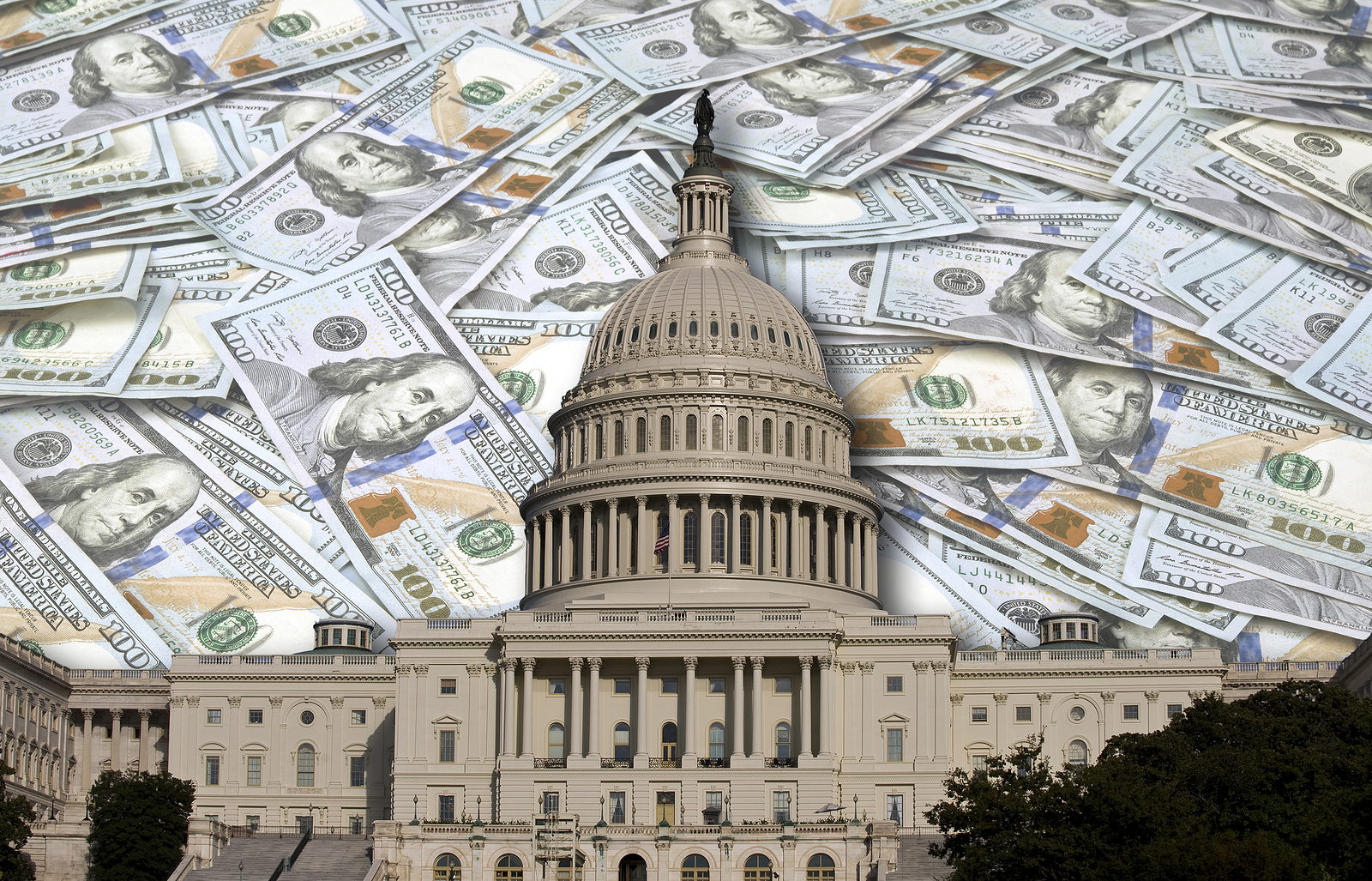Our nation has experienced debt fatigue, allowing debt to increase more rapidly than our national income. Total federal debt is now more than 120 percent of national income, a record, and is increasing rapidly. When unfunded social insurance obligations are included, total debt rises to about 450 percent of GDP and grows faster than the economy.
The accumulation of debt and unfunded obligations associated with federal social insurance programs exposes the country to an increasing risk of a fiscal crisis and threatens the long-term viability of Social Security and Medicare. As the “trust funds” associated with Social Security and Medicare become exhausted, future generations face the possibility of paying higher taxes and receiving fewer benefits.
The fatal flaw is the U.S. Constitution does not include any constraints on fiscal policy. Congress relies on statutory fiscal rules that are frequently modified, circumscribed, and suspended. As a result, a commitment to fiscal responsibility by one Congress is not binding on a later Congress.
In contrast to the federal government, state and local governments have been more successful in maintaining sustainable debt levels. Total state and local debt today is equal to 13 percent of national income, about the same level as three decades ago. Clearly, state and local governments have had much greater success than the federal government in constraining their debt to sustainable levels. They have solved the commitment problem by incorporating effective fiscal rules in their constitutions and statutes.
New Hampshire has had more success than other states in constraining public debt. State and local debt relative to gross domestic product in New Hampshire is 9.8 percent, well below the average for all states. That is somewhat surprising because fiscal rules at the state level are relatively weak compared to other states.
New Hampshire has no constitutional or statutory limit on total state debt. Statutory rules limit debt service to 10 percent of general fund revenues, a limit that a three-fifths vote of the legislature can exceed. New Hampshire statutes require the governor to submit a balanced budget and prohibit the legislature from carrying a deficit over from one fiscal year to the next. New Hampshire has no tax or expenditure limit. The legislature can pass tax and revenue increases with a simple majority vote. Statutes provide for a rainy-day fund with a generous limit equal to 10 percent of general fund revenues. The governor has veto authority that can be overridden by a two-thirds vote of the legislature.
The explanation for New Hampshire’s success in constraining public debt lies primarily in the strong federalist structure of state and local government. The New Hampshire Constitution places much of the power to tax and spend at the local level, where fiscal rules are more stringent. There tends to be more transparency and accountability for fiscal policy at the local versus state level.
There are several lessons that the federal government can learn from the experience with fiscal rules in New Hampshire and other states. Incorporating fiscal rules in the Constitution can prevent legislators from behaving in a fiscally irresponsible manner. If legislators fail to balance the budget and stabilize debt, they face the wrath of citizens who voted to incorporate the fiscal rules in their Constitution. Citizens then have recourse through the legal system to enforce the constitutional fiscal rules. Another lesson from the experience in New Hampshire is the importance of a strong federalist system.
New Hampshire legislators and citizens have the power under Article V of the U.S. Constitution to address federal fiscal irresponsibility as well. Two-thirds of the states (34 states) can call a convention of states to propose fiscal restraints on the federal government. Any resulting fiscal responsibility amendment proposed by a convention must be submitted for ratification by three-quarters of the states (38 states), preferably by a vote of the people, as was the case with the 21st Amendment.
New Hampshire submitted a plenary application for an Article V Convention in 1907-08. New Hampshire reaffirmed its support for a convention of states under Article V to propose a fiscal responsibility amendment by submitting a new application in 1978. Recent research discovered that more than the required number of states called for such a convention of states in 1979, and yet Congress has failed to act.
Legislation introduced in Congress this year (H.C.R. 24) would require Congress to fulfill its obligation under Article V of the Constitution to certify and count state resolutions and call the convention. Non-profit organizations are now working with state legislators in New Hampshire and other states in an appeal to the U.S. Supreme Court for a Declaratory Judgement that would require Congress to record and count the applications. New Hampshire and other states must now step up and demand that Congress set the time and place for such a convention as required under Article V.
In New Hampshire, the time for action is now. ‘Trust but Verify’ and ‘Live Free or Die’!



